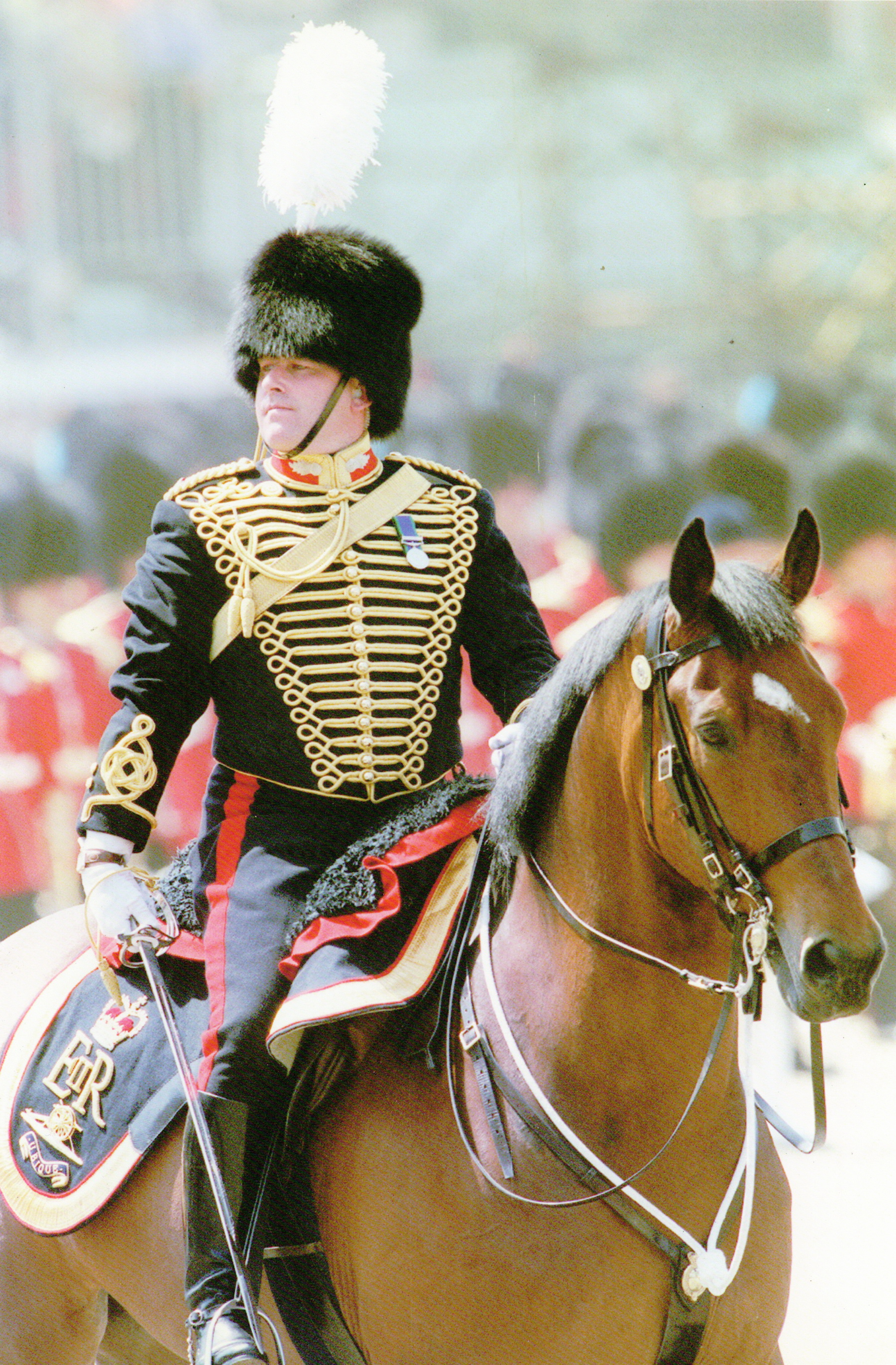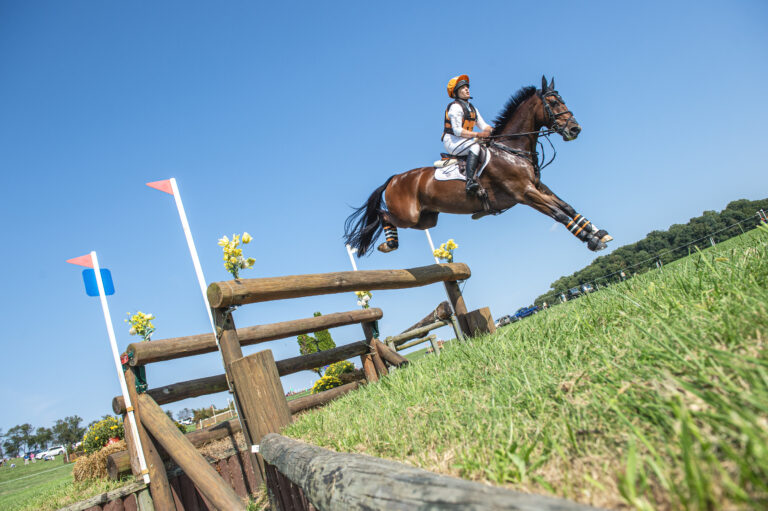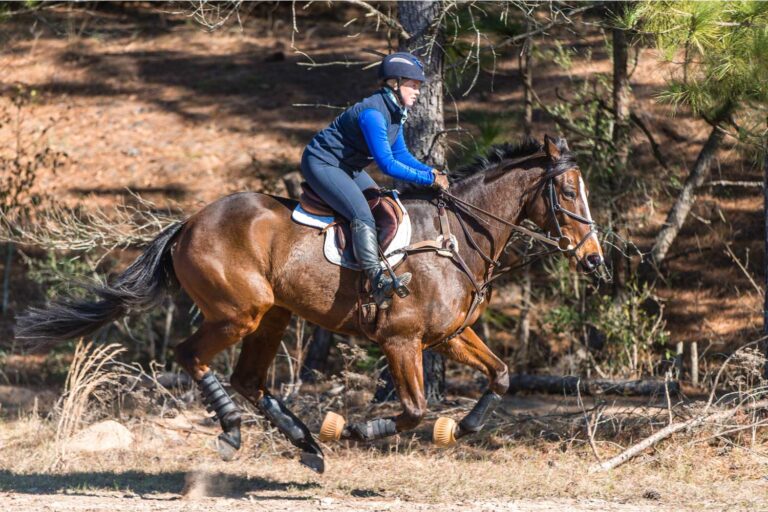
As the U.S. Equestrian Federation’s Director of Sport Will Connell performs a complex computer search at his desk in Gladstone, New Jersey, it’s hard to imagine that this genial fellow in an open-necked shirt was once commander of the King’s Troop Royal Horse Artillery in Great Britain, kitted out with gold braid, plumed busby (a military headdress) and sword.
From 1998–2001, Will oversaw the 165 soldiers and 130-plus horses taking part in British ceremonies of state for Queen Elizabeth’s Household Troops.
The obvious question: How did Will go from that position to working as the USEF’s director of sport?
It all started with horses, of course. Growing up in England, he followed the hounds on a little gray pony named Sugar. He went on to join Pony Club and participated in show jumping, dressage, eventing, hunter trials and team chasing.
“I was pretty terrible at most of it, but I enjoyed it,” he recalls.
Early on, Will was interested in going to sea, but then an old family friend and former King’s Troop officer who worked for Prince Charles came to dinner.
“I hear there’s some nonsense about you joining the Navy,” the friend told 14-year-old Will. “You’re joining the Army. You’re going to want to command the King’s Troop.” He took Will to visit the Troop at its headquarters in London and something clicked. “I fell in love with the King’s Troop,” says Will.
After graduating from secondary school, Will went to the Royal Military Academy at Sandhurst. “One thinks the Army’s about shouting at people—it’s not. It’s about getting to understand people, and more importantly, understanding yourself and what your limits are,” muses Will, who was stationed in Northern Ireland during “the Troubles,” the conflict involving the region’s constitutional status.
The King’s Troop was quite a change from that sort of active duty. As Commanding Officer, Will dealt with “various groups of people passionate about what they did, whether it was the people who looked after the harness, the saddlers, the farriers, the people who rode in the gun teams and the people who looked after the guns, which saw action in the First World War, so they were very old. My privileged position as the Commanding Officer was to try and create an environment where they all came together to produce excellence on parade. I think that very much relates to what you’re trying to achieve in a sporting program.”
Though “it was a huge honor to be involved in that ceremonial scene in London,” after he finished his term, Will left the Army. About a year later, he learned the British Equestrian Federation’s performance director had departed.
“I thought, ‘Maybe that’s something I can do,’” Will recalls. He had some team experience, having been chef d’équipe for the country’s Young Rider eventing squad, and he was an eventing steward as well.
He got the job in 2003, running the world-class program for eventing, dressage, show jumping and para-dressage, where the mission was, “identify talent, maximize potential, deliver success.” Will was involved in the run-up to the 2012 London Olympics and Paralympics, where the British team earned 11 medals—five gold, five silver and one bronze. That year, he was awarded the Most Excellent Order of the British Empire in recognition of his service to equestrian sport. Princess Anne made the presentation at Buckingham Palace.
But by 2014, when he had been performance director for 11 years, Will felt it was time to try something else. “There was a huge opportunity for the sport in this country,” he said, explaining his professional reason for the move across the ocean to the U.S. There also was a personal reason. His then-partner and now wife, Lizzy Chesson, was in the U.S. She is the managing director of show jumping for the USEF.
This month, Will is going to be busy at the FEI World Equestrian Games™ in Tryon, North Carolina, where he will oversee all eight disciplines for the U.S.
“One of the things you notice here is the huge support for the team. The passion and pride in the teams run deeper than in a lot of countries,” he said of the U.S. The WEG can play into that. Will hopes it “will be a platform to spread the message about the USEF, the affiliates and the joy of horse sports.”
This article was originally published in the September 2018 issue of Practical Horseman.
Click here for complete eventing, show jumping and dressage coverage, event highlights, and a behind-the-scenes experience during #Tryon2018. Coverage of the FEI World Equestrian Games™ Tryon 2018 is brought to you by SoftRide and Hylofit










